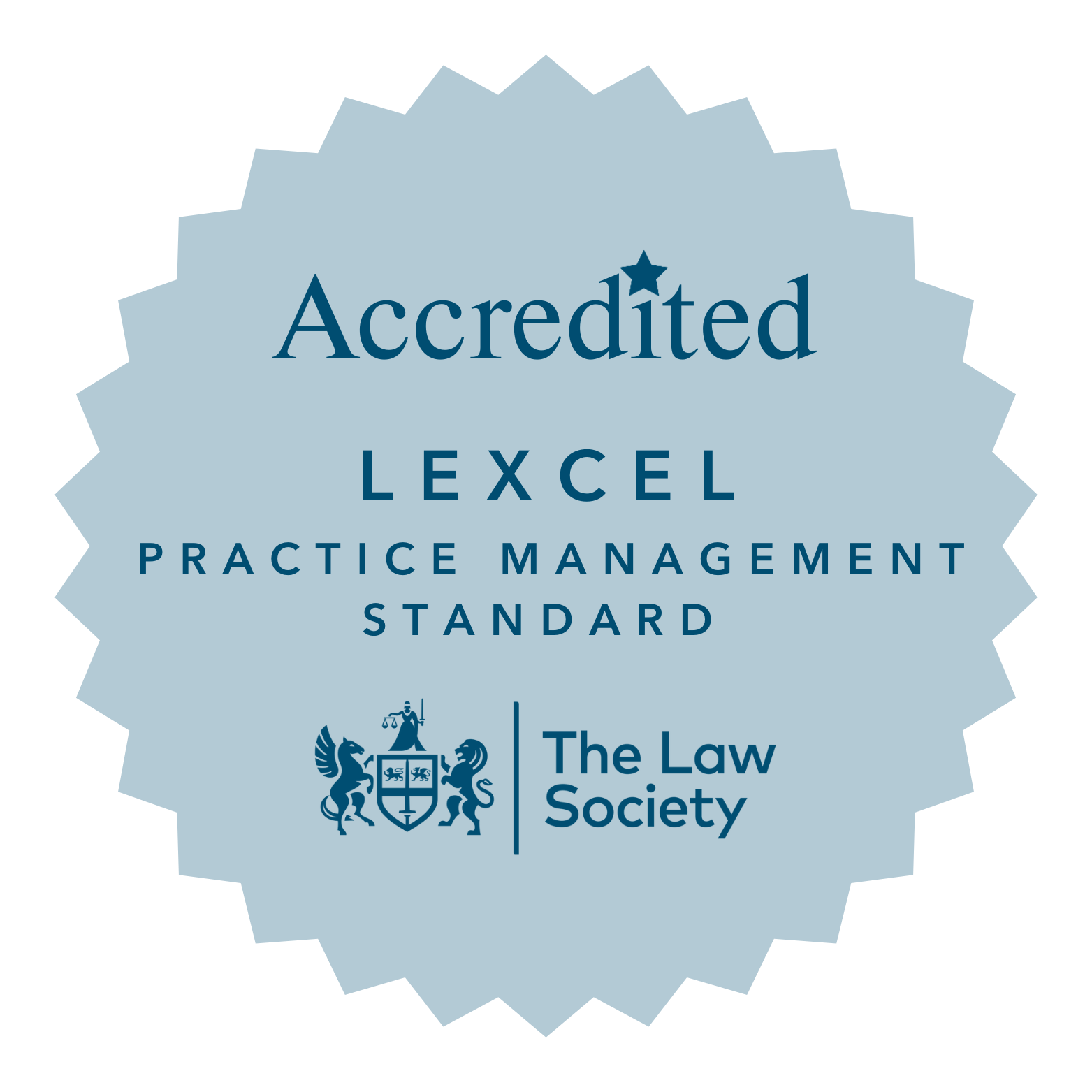Divorce & Child Arrangements
Making new arrangements for children is often one of the hardest aspects of a divorce or separation. Both parents need to come to terms with seeing their children less frequently as well as allowing the other parent to have a level of control. It is usually a difficult time for all involved until a new routine has been agreed and established.
At Gibson Young we understand the emotions involved in making arrangements for children. We will offer support and guidance throughout and negotiate with your spouse and their legal representative where necessary to try and reach an agreement that is acceptable to both parties.
We are members of Resolution, a family law group that promotes a conciliatory and non-confrontational approach to resolving disputes. As well as offering advice and representation to you, you can be assured that we will work hard to agree an arrangement that will be in the best interests of your children.
Our child arrangements services include the following:
• Negotiating with the solicitor for your child’s other parent to agree new arrangements
• Representing you through the mediation process where necessary
• Drafting a child agreement for approval
• Applying to the court for a consent order setting out the terms of the agreement
• Taking your case to court if agreement cannot be reached by way of negotiation or mediation
• Advice and representation in the event that your child arrangements order is breached
Contact our SW15 solicitors about arrangements for children in divorce.
If you would like to speak to an expert child arrangements, ring us on 020 7924 2919, email us at reception@gibsonyoungsolicitors.com
or fill out our Contact Form.
For information about our other related services, please see our matrimonial and family page.
How our SW15 lawyers can help with arrangements for children.
We can negotiate the terms of the arrangements for your child with the solicitors representing their other parent. We will discuss your options with you and suggest ways in which disagreements can be resolved.
Our family law solicitors are understanding and approachable and we know that this is likely to be a difficult issue for you. We always work proactively to try and resolve matters without avoidable delays. We will make sure that we keep you updated as to progress and that we are available to speak to you to answer any questions you may have.
Child arrangements FAQs
What goes in a child arrangements order?
A child arrangements order will deal with issues such as:
• Residence, formerly referred to as custody, or where a child will live;
• Access, formerly referred to as contact, setting out who a child will see and when this will take place;
• How a child will keep in contact with family members when they are not together, for example, by email or telephone;
• Other issues such as education, religion, overseas travel and change of name.
Where you are able to agree on arrangements for your child with their other parent, the terms of your agreement can be put before the court to be sealed into a legally binding child arrangements order.
What happens if I cannot agree child arrangements with my spouse?
If agreement cannot be reached by way of negotiation, the next step is to consider mediation. This is a legal requirement in most cases, except where abuse is an issue.
You and your child’s other parent will meet with a mediator at a Mediation Information & Assessment Meeting (MIAM) and have the opportunity to explain the difficulties that need to be resolved. The mediator will explain how the process works and whether they consider that your case is suitable for mediation.
You will either go ahead with the mediation process, or the mediator will provide a certificate for the court confirming that you have considered mediation. You will then be able to ask the court to make a child arrangements order.
How will the court decide on child arrangements?
The court will always make the decision that it believes to be in the best interests of the child. A report will often be prepared by the Children and Family Court Advisory and Support Service (CAFCASS) to assist the court in making its decision.
In deciding what order to make, the court will consider a number of points, including the following:
• The wishes of the child, taking into account their age and understanding;
• The needs of the child, to include emotional, physical and educational needs;
• Any risk to the child;
• The parents’ abilities to meet the needs of the child;
• How any changes may affect the child;
• Any other relevant facts.
What is CAFCASS?
CAFCASS, the Children and Family Court Advisory and Support Service is an independent organisation that represents the interests of children in the family courts. It ensures that their needs, wishes and feelings are prioritised and that their welfare is safeguarded.
Where parents cannot agree on arrangements for children, CAFCASS will usually carry out checks and speak to parents before the initial court hearing. If a further hearing is needed, the court may ask CAFCASS to prepare a report on the family situation to aid in reaching the right decision for the children involved.
How long does a child arrangements order last?
A child arrangements order will generally last until a child is 16 or occasionally until a child is 18.
At what age can a child decide which parent to live with?
A child can choose which parent they want to live with once they reach 16, unless there is a child arrangements order in place which specifies where they should live until they are 17 or 18.
The court will take a child’s wishes into account from around the age of 12 or 13. A younger child’s wishes may be considered by the court, but will carry less weight.
What happens if a child arrangements order is breached?
If your child’s other parent does not keep to the terms of a child arrangements order, it is usually recommended that you try and resolve issues amicably first. Where this is not possible, you can ask the court to enforce the order.
The court will consider why the order has been breached and the effect on the child. It will also go through the child welfare checklist and consider whether to ask CAFCASS to prepare a report. It may require both parents to attend dispute resolution such as mediation.
If the court believes that the order should be enforced, it has the power to make an enforcement order, a fine or even imprisonment. It can also require unpaid work to be performed and order the party in breach to pay compensation for any financial losses incurred, for example, if a family holiday was missed because of the breach.
Contact our expert London child agreements solicitors SW15.
At Gibson Young Solicitors, we offer both legal expertise and outstanding client service. We are friendly and approachable and our advice is clear and straightforward.
If you would like to speak to an expert child agreements lawyer in Putney, ring us on 020 7924 2919, email us at reception@gibsonyoungsolicitors.com
or fill out our Contact Form. All initial enquiries are free of charge and without any obligation.
Putney Office:
1 & 2 Crescent Stables, 139 Upper Richmond Road, Putney, London SW15 2TN

We believe in dispute resolution
In a majority of these cases a positive outcome is achieved by negotiation between solicitors and agreement between the parties. We can advise you on your rights and chances of success and the possible value of a claim. We emphasis negotiation and agreement rather than conflict and confrontation in the application of the principles of law to the special circumstances of each individual case.
If you would like to speak to an expert family law solicitor, please ring us on 020 7924 2919, email us
or fill out our Contact Form. All initial enquiries are completely free of charge and without any obligation.







